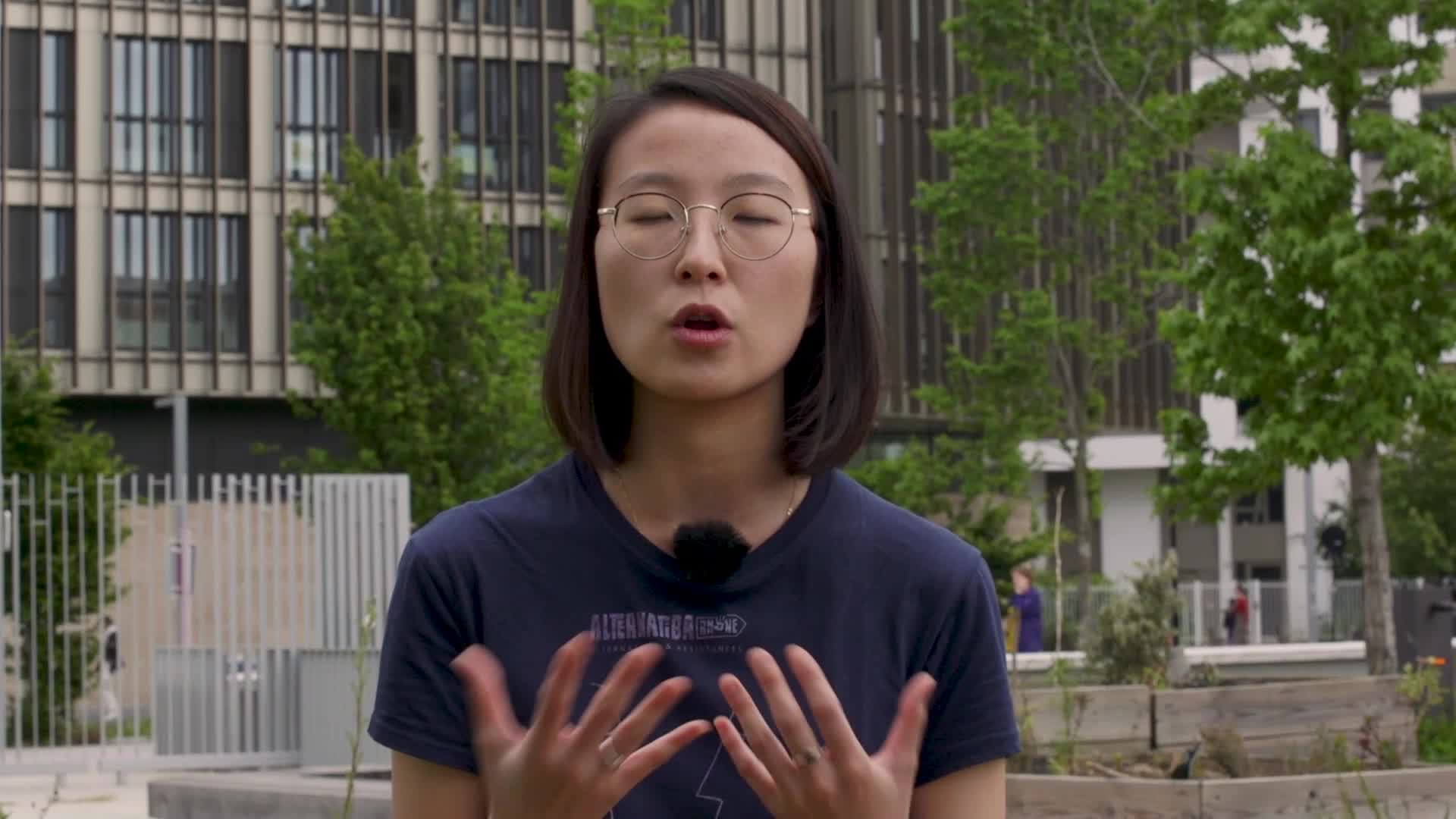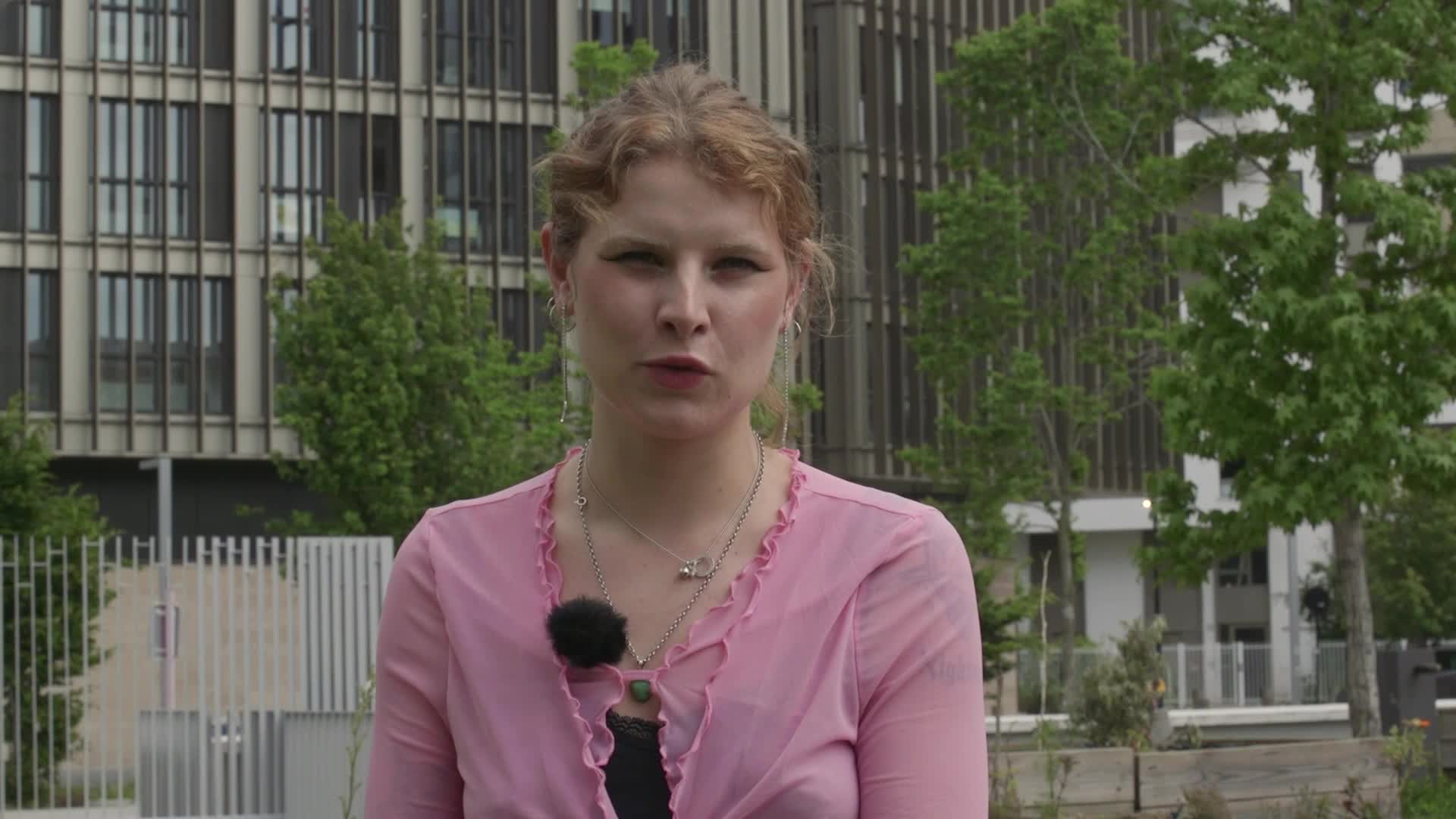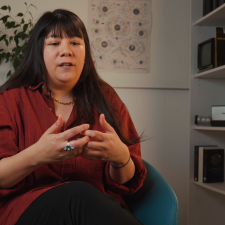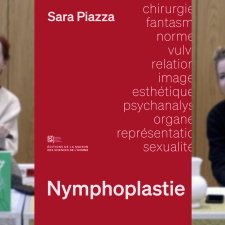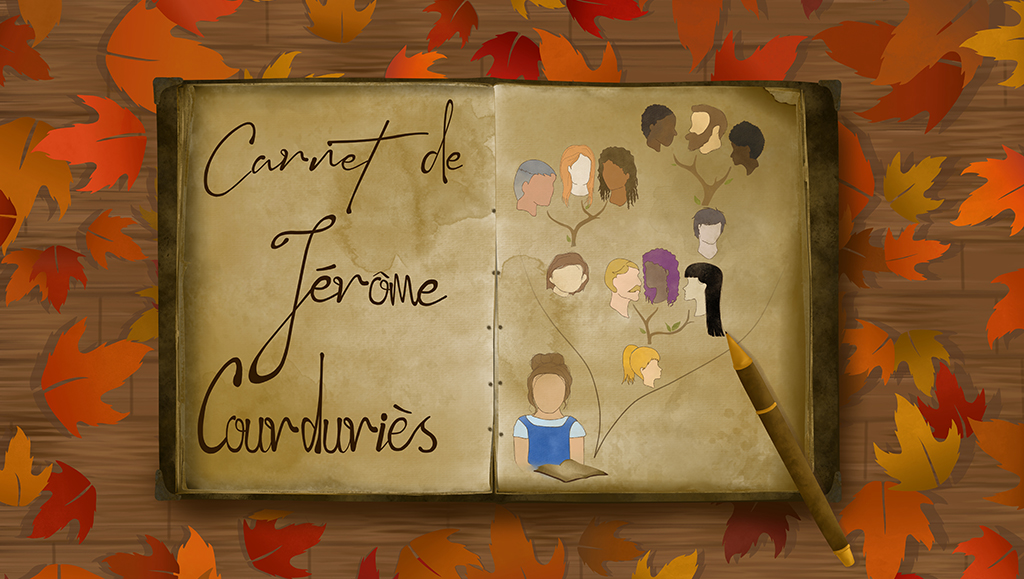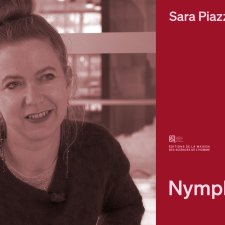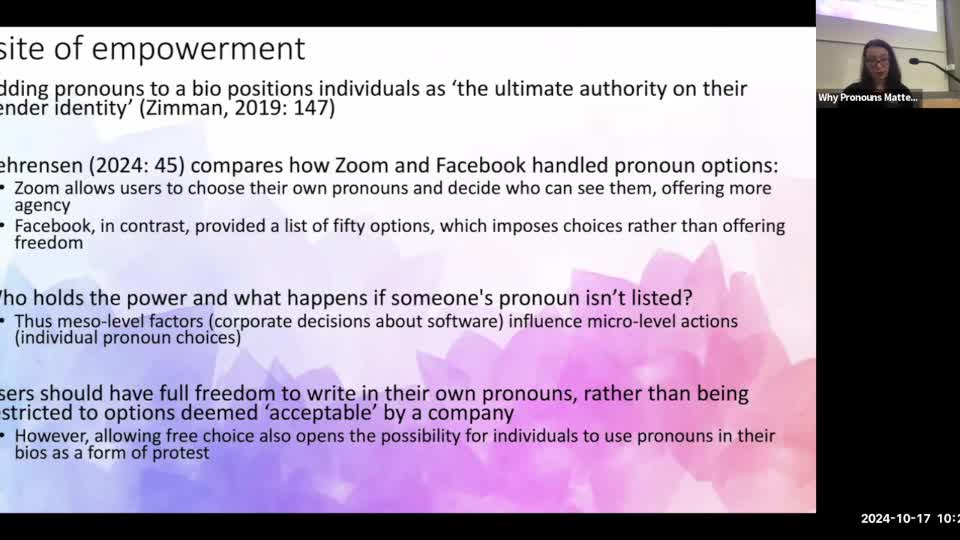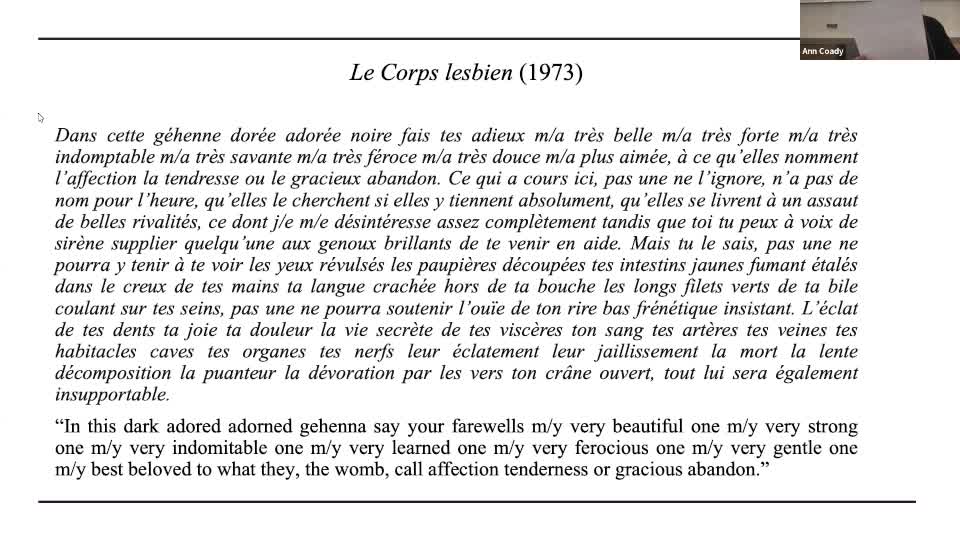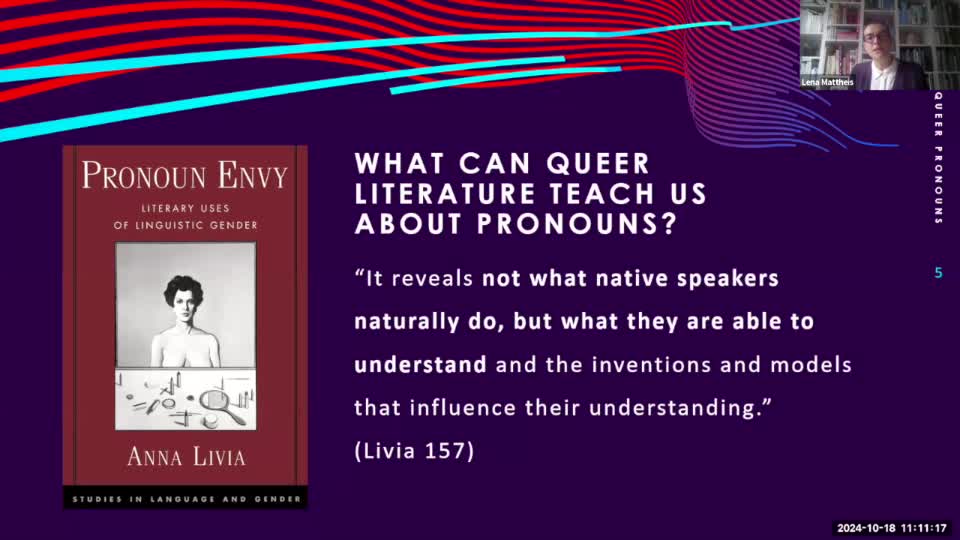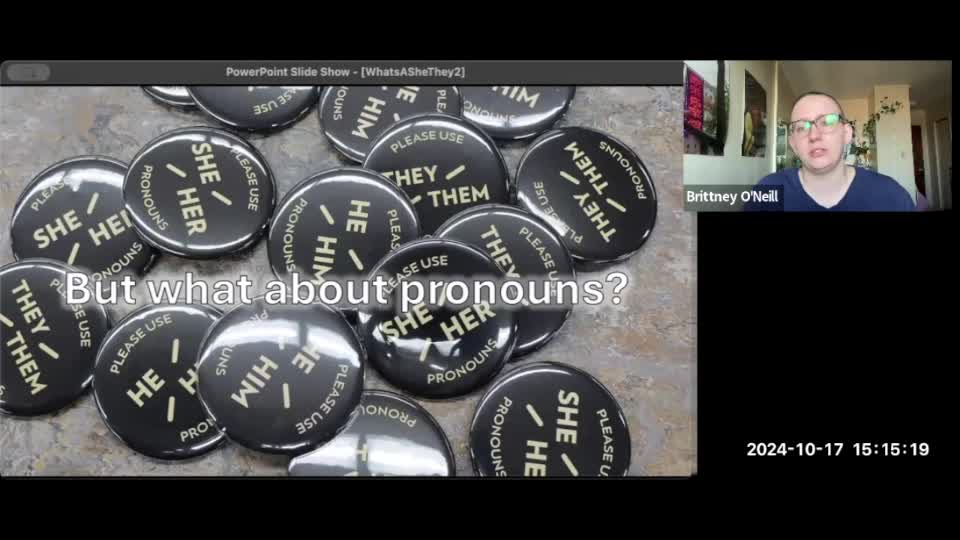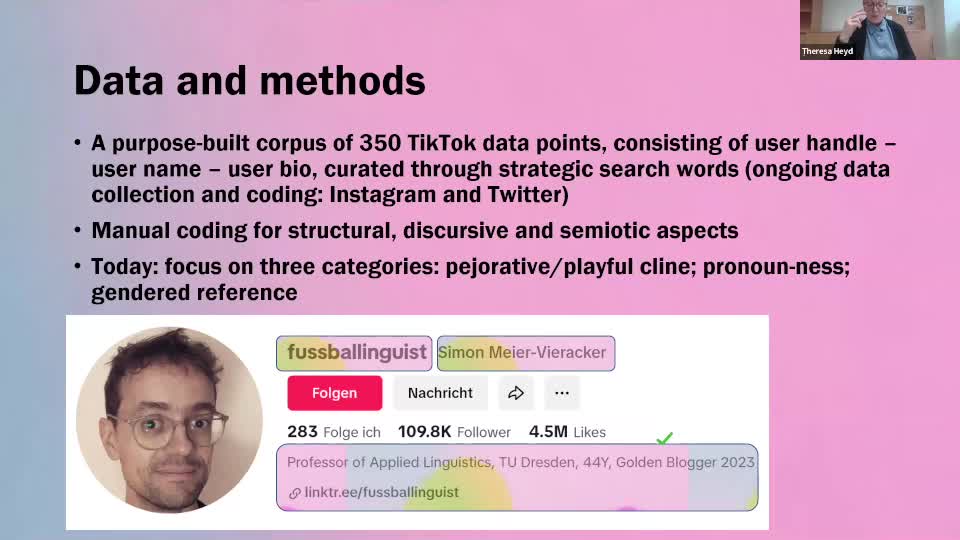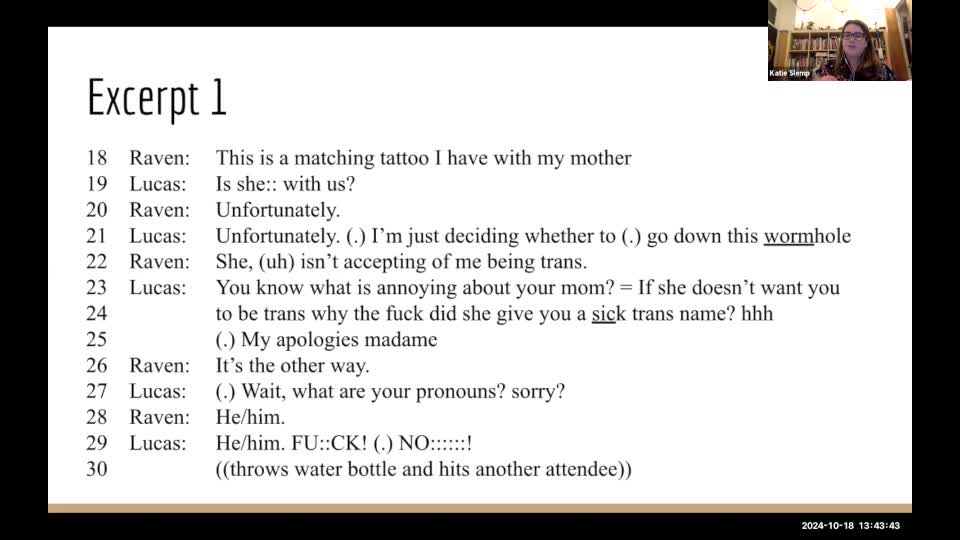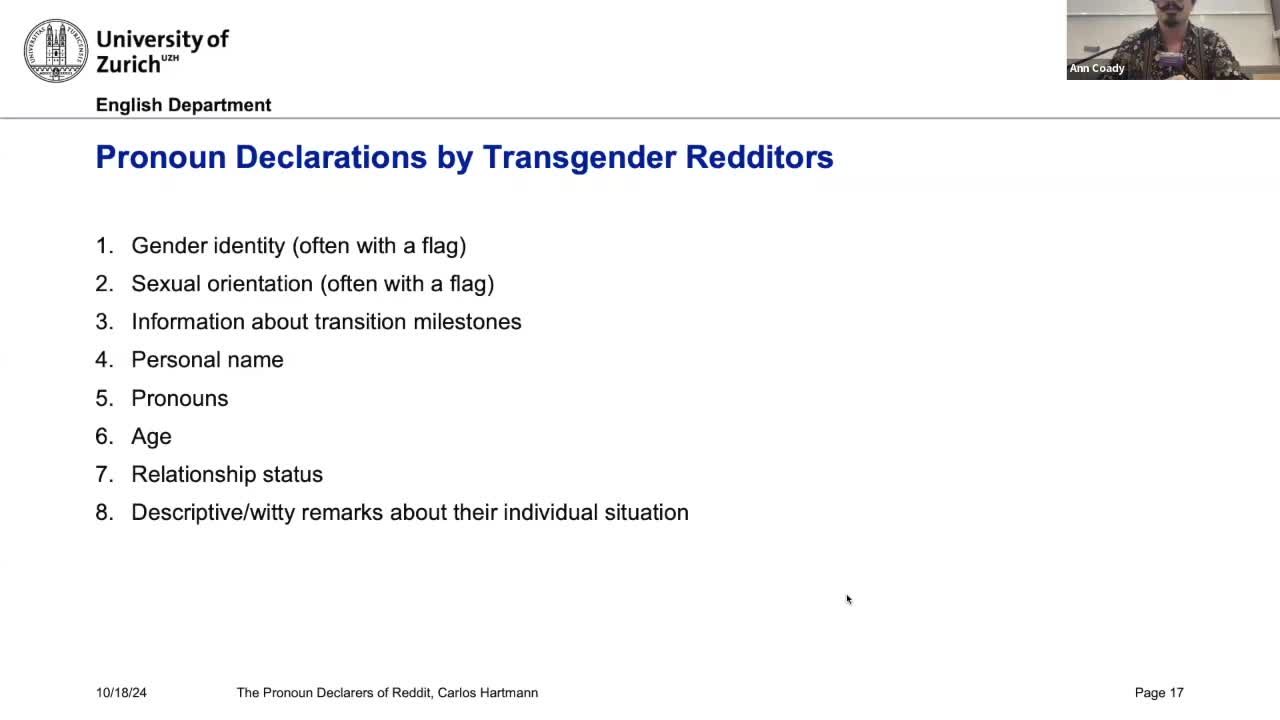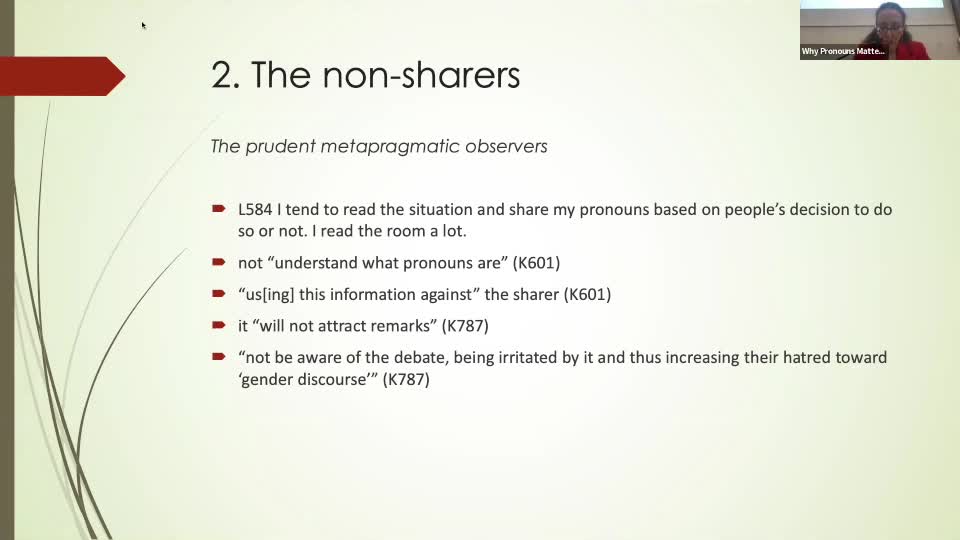Notice
Rencontre avec Eva Maginot
- document 1 document 2 document 3
- niveau 1 niveau 2 niveau 3
Descriptif
Diplômée en 2019 du master mention Sociologie, spécialité Genre, Politique, Sexualité (précurseur du master mention Études sur le genre), Eva Maginot partage avec nous son expérience pendant et après le master et donne quelques conseils pour leur future vie professionnelle aux étudiant·es en cours de formation.
Intervention / Responsable scientifique
Dans la même collection
-
Rencontre avec Shuyi Liu
LiuShuyiDiplômée en 2022 du master mention Études sur le genre et lauréate du Prix d’Accompagnement à l’Insertion Professionnelle de l’EUR GSST (EHESS/INED)
-
Rencontre avec Soraya Jean-Louis
Jean-LouisSorayaDiplômée en 2022 du master mention Études sur le genre et lauréate du Prix d’Accompagnement à l’Insertion Professionnelle de l’EUR GSST (EHESS/INED).
-
Rencontre avec Julia Roux
RouxJuliaÉtudiante de la promotion 2022-2024 de la mention "Études sur le genre" de L’École Universitaire de Recherche (E U R) Gender and Sexuality Studies (GSST) (EHESS/INED).
Sur le même thème
-
Entretien avec Ariane Mak autour de son ouvrage En guerre et en grève. Enquêtes dans les cités mini…
MakArianeDe 1939 à 1945, le Royaume-Uni a connu plus de 7 000 grèves, en grande partie dans l’industrie charbonnière.
-
Soirée de présentation de l'ouvrage "Nymphoplastie"
PiazzaSaraMazauretteMaïaPrésentation de l'ouvrage "Nymphoplastie", de Sara Piazza, présenté par Maïa Mazaurette
-
Prendre position dans le trouble / Carnet de passages #2
CourdurièsJérômePitzalisJuliaPeyrautLolaMontécotRobinPayssanAlexiComment s’empare-t-on d’une toute nouvelle thématique ? Comment traiter d’un sujet d’actualité mais surtout polémique ? L’expérience de l’anthropologue Jérôme Courduriès s’est construite au travers
-
Nymphoplastie. Coupez ce sexe que je ne saurais voir
PiazzaSaraInterview de Sara Piazza, dans le cadre de la sortie de son ouvrage "Nymphoplastie. Coupez ce sexe que je ne saurais voir"
-
“Pronouns in bio: A site of empowerment, validation, struggle, performance, distraction, and corpor…
Pronouns in bio: A site of empowerment, validation, struggle, performance, distraction, and corporate rainbow washing?
-
“Pronouns, past struggles, new practices: political continuity or radical change?”, Claudine Raynau…
RaynaudClaudineI would like to compare two second wave French feminists’ thought and LGBTQIA+ theorizing and practice regarding pronouns and ponder their possible interactions. My focus will be the work of Luce
-
“Gendernonconforming Pronouns in Literature”, Lena Mattheis, University of Surrey, UK
Queerly reshaped pronouns, forms and narrative strategies are flourishing in contemporary non-binary, trans and queer literature. From singular ‘they’ to ‘it’ to neopronouns to the collective voice of
-
““What’s a she/they?”: An (auto)ethnographic exploration of epistemic justice and the double bind o…
In this paper, I combine autoethnographic reflections with an exploration of epistemic injustice (e.g. Berenstain, 2016; Davis, 2016; Fricker, 2007; Pohlhaus, 2014) to consider how the persistent
-
“Mock pronouns”, Theresa Heyd, Universität Heidelberg, Germany
HeydTheresaThis paper gives an account of mock pronouns as a (predominantly digital) discursive practice. The rise of pronouns and pronominal discourse as a gender-inclusive practice has been accompanied by
-
““Wait, what are your pronouns, sorry?”: Conversation analysis of pronoun requests in comedians’ cr…
Comedians on TikTok frequently show videos of their crowd work, where they ask questions to the attendees. While this is not part of their structured stand-up, it allows for spontaneous interaction
-
“A sociolinguistic case study on the Pronoun Declarers of Reddit”, Carlos Hartmann, Universität Zür…
For this study, I extracted and analyzed Reddit comments featuring pronoun declarations within their user flairs, the optional descriptors displayed alongside usernames. The goal was to identify a
-
“What’s in a pronoun and how does it matter?: From the perspective of pragmatics”, Sandrine Sorlin,…
SorlinSandrineIn this talk, I wish to give a quick overview of the quite recent ‘pronoun sharing’ trend from a linguistic and pragmatic perspective, going through the new collocations and semantic shifts of the


